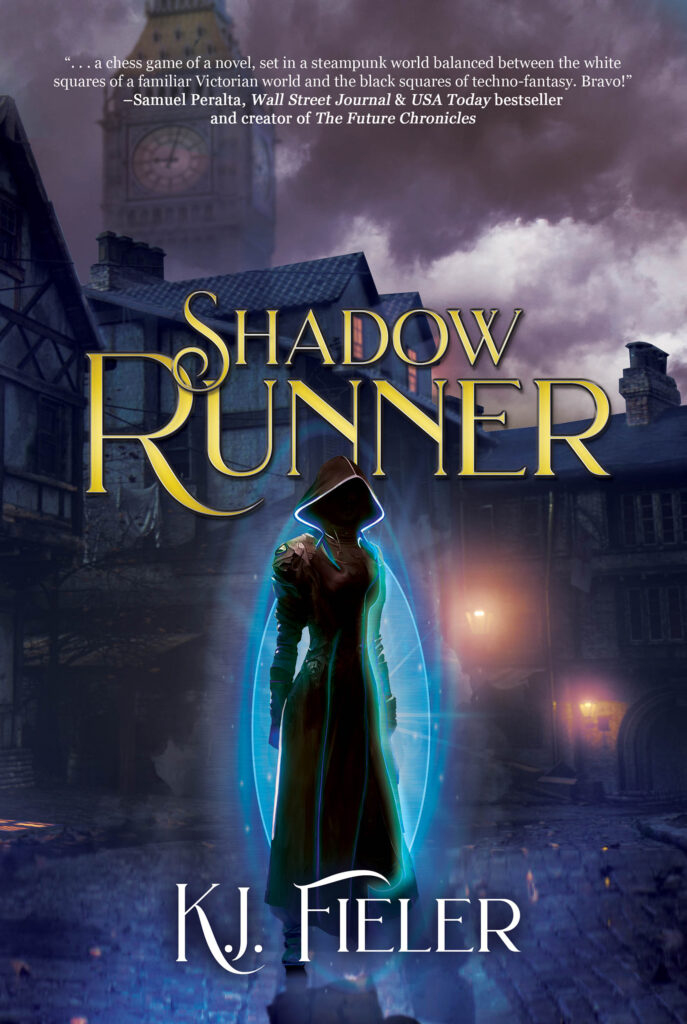Or maybe there’s more?

Just when I thought I found an easy book to review, I started having second thoughts about it. I began to tell myself “hey, yes but there’s more…” over and over, even though I wasn’t sure I knew (and still I’m not) what it is that bothers my perfect classification of “Shadow Runner” as a “Textbook first book in a series”. I know it’s a weird way to say that, but please remember that English is not my mother language.
All in all, “Shadow Runner” was a very pleasant reading, one that wasn’t too complicated to follow. Which, given how many things I’m trying to fit into my busy schedule, was definitely a plus. I also liked the protagonist since page one, and I really felt for her and for the life she was supposed to have.
Everything is a series nowadays
One of the most common piece of advice people give to writer, especially indie writers, is that writing a series of books is much better than writing a lot of standalone ones. Maybe it plays into the tendency of today’s audience of not being able to let go, and the authors not being able to say “Enough” while cash is still flowing, but I don’t want to digress. Maybe I’ll ramble about it in a separate post, who knows.
What matters now is that I’m pretty sure that KJ Fieler heard the same advice, but in a sense she executed much better than many other things I’ve read, as they revealed their “to be continued” only close to the end. To be clear, I’m not saying those other books are bad or that I was let down by their suspended resolution: what I mean is that she structured the book in a way that leaves little to no doubt about the fact that there’s going to be more.
You see it in how young the protagonist is when the books begin, and in the general pacing of her life at her family’s house first and at the Shadows headquarters later.
A nice twist on the chosen one trope
I’ve never made a mystery about it: I am a millennial, born equally close to the beginning and to the end of the generation. If we do the math, it means that my adolescence and early adulthood were marked by a huge amount of stories about child nobodies that turned out to be chosen one, and ended up being hers because of some sort of gift they had.
Harry Potter is the example I’m thinking about, and since we’re at it: I’m pretty sure THAT wasn’t meant to be a series, but that she took the wise decision to milk the cow once she saw (or somebody told her) it could work. I happened to re-read the first book in the series just before I knew JKR had gone crazy, and I couldn’t help but notice how different the tone was with respect to the last one. But we’ll never know, as I don’t plan to get involved with (i.e. paying) anything she’s going to write in the foreseeable future, and I abandoned the life of the pirates when I realised how important movies, books and tv shows are important to me.
What I meant before going on a tangent is that, from the book blurb, I expected the protagonist to be some sort of gifted child as well, unbeknownst to herself and to her entire family. But this is not the case, and it makes for a trope reversal I found very refreshing.
In fact, Ada is randomly kidnapped by the Shadows, and it doesn’t have anything to be with some gift she’s supposed to find within herself. Not that she’s completely clueless: she’s smart, she’s witty. And, unfortunately for her, she’s loyal. In other stories, she’d have become the fiercest and deadliest assassin by the half of the book, but this is not the case in Shadow Runner.
Despite starting with a slight edge over her training mates, Ada shows no particular skill as an assassin, except at being stubborn and a bit of a contrarian. This is partly because she doesn’t want to give in and lose her innocence to the Shadows, even though they’re the ones that in a sense saved her from a boring and unhappy life as a wife in the Victorian aristocracy.
This is explain very well through her relationship with Nadine, the woman who kidnapped her and decided not to kill her and to have her admitted to the Shadows instead. The friend/enemy dynamic between Ada and Nadine is explained very well through the book, in a succession of suspects and twists that move the plot along and let the readers on the edge of their seats.
To sum it up, if you’re looking for an interesting mix of tropes and their subversion set in a Victorian/cyberpunk setting and with a good premise for a great follow up, then “Shadow Runner” is the book for you.
Be First to Comment